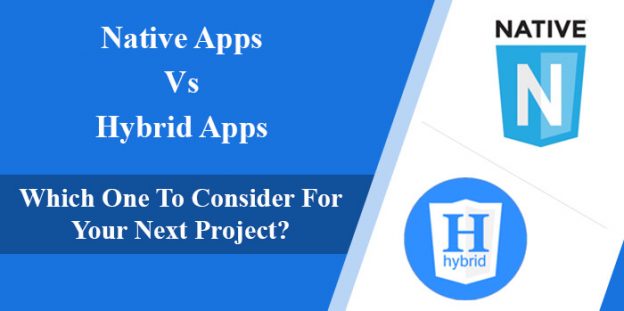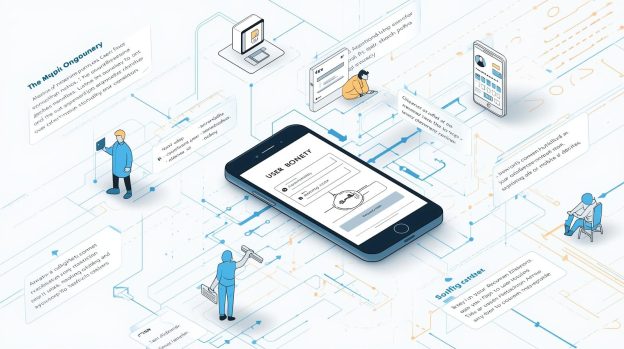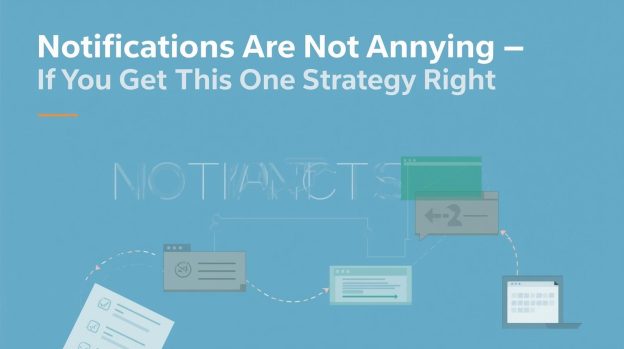Native Apps Vs Hybrid Apps : Which One To Consider For Your Next Project?

The penetration of smart applications in our day to day lives is getting deeper with the emergence of various new technologies. We are surrounded with some of the best Mobile app developers who do not miss any chance to ease every task we do through their programming skills. On a daily basis, thousands of businesses approach the leading mobile app development companies in order to know about their success rates if they consider mobile first approach which means shifting their focus from web to mobile.
The way we used to look at mobile apps is transforming with huge intensity with the introduction of IoT. By the end of 2018, the total apps existing over App store and Google Playstore was 4.1 billion which is enough to understand where business are moving. If you are a business owner and not yet thought of having a mobile application, you might soon fall behind your competitors. It is high time to rethink! First of all, you need to know that you have to target both iPhone and Android users in order to cover the complete market. Though, you can make a choice out of two as per your requirements and type of the target audience.
Here, we are bringing to you important information, pros and cons of two of the most popular types of mobile applications- Native Apps and Hybrid Apps.
Native App Development:
Native applications are developed to work on a specific platform or environment and are written in particular languages as per the platform. For example, the native iOS apps are written either in Objective C or Swift whereas if we talk about Native Android apps, they are written in Kotlin and Java. Native applications generally have a responsive interface and things are loaded faster as compared to any other type of applications. Native apps take full advantage of the particular platform for which it is developed and is said to offer great user experience. They also keep abilities to access the hardware such as a microphone, camera, GPS etc. There are a lot of advantages, though such apps are expensive to develop. You need to spend a smart amount in order to obtain something good and durable.
Pros of Native Apps:
1. Great Performance: Since in the native application development, an app is developed specifically for a platform, it offers a great level of performance. These are framed and compiled using core programming languages and APIs. The app is stored in device in this case and hence, it allows software to take maximum benefits of the processing speed of mobile. Load time reduces significantly as while the user browses through the app, the visual and content elements get already stored. The architecture and user experience is also native as far as Native apps are considered.
2. Great user experience: Whether it is about a website, mobile app or any other software, offering a great user experience is very important else the users might leave you in minutes. It has been found through a study that “79% of consumers try any app either once or twice if it failed to work in the first attempt while only 16% of the users would give it more than two attempts.” A lot of apps are uninstalled after single usage since they fail to meet the expectations of the users. Well, a great thanks to native app development, it brings a great user experience for your users. There are great gesture recognition, scrolling and animation effects offered by Native apps.
3. Secured: Native apps are secured and takes special care of user data and are mostly free of any kind of attacks.
4. Fewer bugs: Native app developers have access to new software development kit (SDK) when the new versions are released so it becomes handy for them to face any challenge due to which there are lesser chances for bugs. If we talk about hybrid apps, there is one code base for the two types of applications due to which developers find the process complex whereas in the case of native apps, there are separate codebases which encourage fewer or no dependency for bugs to come in way.
Cons of Native Apps:
1. Time consuming: The development of native apps need time and efforts. There are two resources which have to be engaged in the development process which brings a great cost to the development companies. Comparatively, hybrid apps are delivered fast because one has to code just once.
2. Costly: Native apps are undoubtedly costly since there are two developers engaged in the development process. Also, core developers generally cost more. Specialised and great proficiency is needed in the case of native applications.
3. Risks: There are risks involved in terms of output. Sometimes it becomes challenging for the developers to release the exact same functionalities over various platforms.
We would now like to tell you about Hybrid apps which is another type of applications gaining immense popularity in today’s time due to its lower cost and good performance.
Hybrid App Development:
Hybrid apps can be considered as a combination of native and web apps which is coded once and the same app works on Windows, Android and iOS. The hybrid application is developed using technologies such as CSS, HTML5 and JS. There is a single code base in the case of Hybrid apps. It is always not necessary that hybrid apps can fall in your budget but yes, it has surely given an opportunity to a lot of small businesses to afford mobile apps.
Pros of Hybrid Apps:
1. Cost effective: You must have guessed it by now that why it can be preferred in need. For Hybrid app, you just need one developer and the same developed app can run over multiple operating systems. There are lesser efforts required and hence cost is comparatively lower than native apps. It ensures comparatively cheaper initial costs and then faster distribution to the market since time taken is lesser.
2. Less time: Hybrid apps get developed in a short span of time as you have to write code just once and the same is used across all the platforms. If you want to quickly launch your mobile app for some purpose then hybrid is a great option for you to stand out of the competitors. If you go for Native, you might have to hire costly resources and that too separate resources for different platforms. Though, the development time also depends upon the features required.
3. Low maintenance: Hybrid applications does not need a great degree of maintenance. You can carry out changes the time you want.
Cons of Hybrid Apps:
1. Low performance: Hybrid applications do perform well but in the case of basic functionalities. If we talk about, 3D or HD games or other complex functionalities, then there might be issues faced by the developers which is why Native application development is suggested in such cases.
2. Dependency: Hybrid applications cannot work independently. They are somewhere dependent on various native plugins and frameworks such as Ionic, Cordova etc. These are needed to be synced with the latest version of the platform and other updates.
3. Debugging issues: Hybrid app development creates a layer between codebase and the platforms, hence it becomes difficult for the developers to debug. The debugging might also create new bugs due to which there is a delay that might in launch.
4. Imperfect User Experience: Hybrid applications generally fail to offer a good user experience. If you go on improving UX for one platform, it might become bad for the another one.
Native apps Vs. Hybrid Apps:
Since you are aware of the pros and cons of both types of applications, it is natural to get confused. To set your mind at one, you need to look at your budget and the time. If you have enough time and budget then Native can be the best choice for you. On the other hand, for a quick launch, Hybrid will be best. Native applications are found to offer great user experience and smooth features, though Hybrid applications can offer you good features too at a low cost. Both of the types have their own pros and cons, it depends upon you that what kind of things are required and where can you compromise. Once you have the requirement document in your hands, you can also consider approaching a good consultant in order to decide.
Write to us in the comment box, if you would like to have further clarification on any of the points.
Also Read: A Detailed Guide To Publish Your Android App on Google Play Store
Why Internet of Things (IoT) is the Real Game Changer for Web Development?
What is Agile Methodology & Why is it used for Mobile App Development?
How to Develop a Food-Ordering App like Uber Eats:Features & Cost






